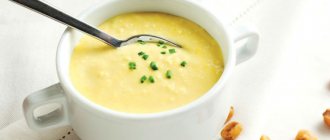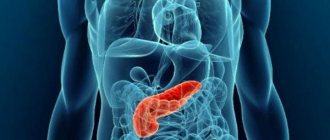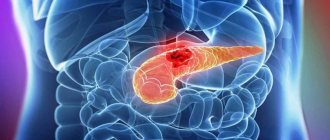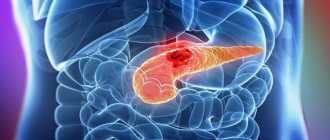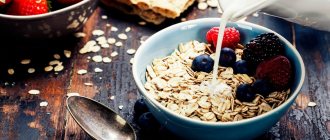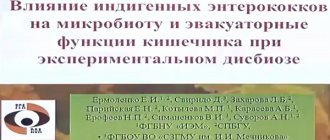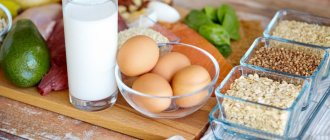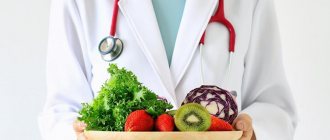Medical editor: Zemereva N.Yu., physiotherapist June, 2021.
Inflammation of the pancreas, or pancreatitis, is a complete disaster for the entire digestive tract. The pancreas produces hormones (insulin, glucagon, lipocaine), enzymes that are necessary for normal digestion and digestion of proteins, fats and carbohydrates, and bicarbonate ions that neutralize the acidic secretions of the stomach. Pancreatitis is divided into acute and chronic, and adherence to a diet is necessary both in the acute stage and in the remission stage.
Diet rules
The goal of the diet for pancreatitis is mechanical, chemical and thermal sparing of the gastrointestinal tract. That is, by following the treatment table for inflammation of the pancreas, its normal functioning is achieved, the stomach and intestines are protected from aggressive foods, the activation of the gallbladder is reduced and liver diseases are prevented.
The treatment table for pancreatitis in the Pevzner classification is table No. 5p. Table No. 5p is somewhat different from table No. 5, which is prescribed for liver diseases, but also has a number of similar dietary restrictions. According to modern standards, a diet for exacerbation of pancreatitis is a variant of a standard diet with normal (in the acute stage) and increased (in remission) content of proteins, fats and carbohydrates, with a limitation of chemical and mechanical irritants of the gastrointestinal tract.
General principles of diet for pancreatitis
For pancreatitis, the diet is divided into two options - nutrition during exacerbation and nutrition during remission. For both options, the nutritional rules are identical.
Mechanical food processing.
- During an exacerbation of the chronic form, all food should be pureed, boiled or steamed, which ensures maximum sparing of the stomach.
- During the remission stage, oven-baked and stewed dishes are added.
Temperature regime . Food should be served neither hot nor cold. The optimal food temperature is 15-65°C.
Knowing of limits . With pancreatitis, it is very important to observe moderation while eating. Overeating is not allowed, because... this creates not only an increased load on the pancreas, but also on the entire digestive tract as a whole.
Number of meals . Meals during the day should be small, 4-6 times a day. You should not try to satisfy your hunger with a large portion of food at once; you must follow the principle: “little is better, but often.” This will facilitate the work of the pancreas, food will be better absorbed, and pain after eating will practically disappear.
Rejection of bad habits . Drinking alcohol is dangerous not only for the development of alcoholism, but with pancreatitis, alcoholic drinks provoke the formation of protein “growths” - plaques in the pancreatic ducts, clogging them, disrupting the outflow of gland secretions into the duodenum, thereby exacerbating the inflammatory process in the organ and provoking the gland to increase self-digestion .
Nicotine, in turn, interferes with the production of enzymes that neutralize acetaldehyde (this substance is formed during the breakdown of alcohol in the body, it provokes inflammation of the pancreas).
Recipes for inflammation of the pancreas
To make your daily menu seem less boring, you can diversify it with the following recipes.
Vegetable stew
Grind potatoes and pumpkin (0.5 kg each), grate 1 carrot. Place the vegetables in a pan (greased with olive oil) in layers, starting with the potatoes. Pour half the volume with water, add salt and cook for 25-30 minutes. Finally, sprinkle with parsley and dill.
Baked pike perch
To prepare, you need to take ½ kg of fish fillet, cut into medium slices and place on a baking sheet covered with foil. Sprinkle everything on top with carrots (1 piece), put 10 g of butter, salt and wrap in foil. Bake in the oven at 180 degrees for half an hour.
Fish cutlets (quenelles)
Grind 400 g of fish pulp, add a quarter of the loaf, softened in milk, and 2 egg whites. Add salt and mix. Make ball-shaped cutlets and place in boiling water for 3-5 minutes.
Steamed meat pudding 3
Ingredients:
- rabbit meat (130 g);
- butter (25 g);
- egg;
- semolina (3 tsp);
- half a glass of water.
Grind the meat thoroughly to a homogeneous consistency, add semolina, whipped egg white, then raw yolk and mix everything, carefully knead the dough into a mold and steam.
Curd soufflé
Grind the apples (250 g) on a fine grater, add cottage cheese (300 g). Separately, beat melted butter (50 g) with sugar (3 tbsp) and yolks (4 pcs.), add whites whipped until foamy (4 pcs.). Pour the prepared mixture into apples and cottage cheese, stir. Pour the finished creamy dough into a greased pan and bake at 180 degrees for 25–40 minutes.
All prescriptions are allowed in the chronic stage of pancreatitis. They are not only healthy, but also very tasty, which allows you to take your mind off thoughts of junk food and enjoy a healthy diet.
A strict diet for pancreatitis is the main component in the treatment of a dangerous pathology. Allowed foods are rich in vitamins and minerals, which makes the diet complete and healthy. It is important to give up junk food, bad habits and strictly follow the doctor’s instructions. This will help prevent exacerbations of the disease and achieve long-term remissions.
Exacerbation of pancreatitis: nutrition rules
In the first days of the disease, when the pain syndrome is pronounced, it is necessary to adhere to the principle: “hunger, cold and rest.” That is, all foods are excluded, a heating pad with ice is placed on the stomach, the patient must maintain physical and emotional rest.
In the first or second days from the onset of an exacerbation, fasting is indicated. You should only drink 1-1.5 liters of liquid (a glass 5-6 times a day).
Recommended:
- alkaline mineral waters (sodium bicarbonate) without gas. The most popular of them are Narzan and Borjomi.
- Rosehip decoction (no more than 400 ml per day)
- weak tea.
From 3-4 days, mucous decoctions and liquid, boiled porridge are introduced into the menu. On days 5-6, a protein omelet, pureed buckwheat or oatmeal, some crackers, boiled vegetables, and meals up to 6 times a day in small portions are allowed. Puddings, mousses, casseroles, and diluted juices are gradually being introduced into the menu. As the acute period subsides, they switch to the main diet.
The daily amount of necessary nutritional elements of the dietary table during exacerbation of pancreatitis:
- whites: 85-90 gr. (half of them are of animal origin);
- fats: 70-80 gr. (of which a third are plant-based);
- carbohydrates: 300-350 gr.
- table salt 6-8 gr. (food should be under-salted);
- free liquid 1.5-2 liters.
The energy value of the diet is 2170 - 2480 kcal.
Sample menu for the week
Strict adherence to the principles of proper nutrition is very helpful in the treatment of pancreatitis. The diet should not be interrupted or junk food added to the diet, as this can provoke an acute attack of the disease.
Table “Menu for every day”
| Days | Menu |
| 1st day | Breakfast: milk oatmeal, pieces of veal, tea or compote |
| 2nd breakfast: eggs (omelet or boiled), wheat broth (bran), baked fruit (apple, pear, banana - to choose from) | |
| Lunch: vegetable soup, noodles, chicken soufflé, jelly, tea | |
| Afternoon snack: cottage cheese, kefir, fermented baked milk (optional), tea | |
| Dinner: boiled pike, bread, tea | |
| 2nd day | Breakfast: boiled potatoes (mashed), a piece of fish, a few crackers, tea |
| 2nd breakfast: eggs, turkey cutlets, bread, compote | |
| Lunch: soup with chicken fillet, fish cutlet, bread, sour milk | |
| Afternoon snack: homemade berry jelly, jelly-like fruit broth, still water | |
| Dinner: carrot puree, cutlets, muesli, tea drink | |
| 3rd day | Breakfast: baked vegetables with chopped rice, beef liver, tea, steamed raisins |
| 2nd breakfast: vermicelli, beef soufflé, apricot puree, mineral water Lunch: broth (with vegetables), cod liver, bread, cookies, tea with honey | |
| Afternoon snack: jelly berry dishes, 2-3 pieces of watermelon or melon, compote | |
| Dinner: muesli, baked cottage cheese, jam, tea | |
| 4th day | Breakfast: liquid semolina, vegetable casserole, bread, fermented baked milk |
| 2nd breakfast: beef tongue, vegetable puree (broccoli, carrots), some marshmallows, tea | |
| Lunch: rabbit broth, steamed meatballs, shrimp, cookies, jelly | |
| Afternoon snack: mousse or jelly, baked apple (pear, banana) | |
| Dinner: oatmeal, chicken breast, mineral water | |
| 5th day | Breakfast: soft-boiled eggs, beef liver, apricot puree, tea with honey |
| 2nd breakfast: vegetable casserole, pasta, tomato juice, mineral water | |
| Lunch: rabbit soup, rabbit or turkey cutlets, baked zucchini, compote | |
| Afternoon snack: jelly, cookies, banana puree | |
| Dinner: mashed potatoes, boiled pollock, kefir | |
| 6th day | Breakfast: rice, chicken cutlets, cod liver, tomato juice |
| 2nd breakfast: muesli, beef tongue, baked pumpkin, rosehip infusion | |
| Lunch: vegetable soup, boiled fish, applesauce, mineral water | |
| Afternoon snacks cookies, jam, fermented baked milk, walnuts | |
| Dinner: chicken soufflé, oatmeal, bread, compote | |
| 7th day | Breakfast: vegetable stew, beef cutlets, bread, tea, honey |
| 2nd breakfast: rice, cod liver, tomato juice, peanuts | |
| Lunch: vegetable soup, fish fritters, cookies, bran broth | |
| Afternoon snack: cottage cheese, honey, tea | |
| Dinner: curdled milk, crackers, muesli, beef tongue |
Important! The size of the portions depends on the patient’s well-being. A person can increase or decrease their volume, as well as change some ingredients. The main thing is to consume exclusively healthy and approved foods for pancreatitis.
Remission: softer diet
After the period of exacerbation has passed, patients are transferred to a less restrictive diet. Stewed and oven-baked dishes are added.
This diet includes a high protein content, a normal amount of fats and complex carbohydrates, but “fast”, easily digestible carbohydrates (sugar, honey, flour products) are severely limited. Dietary supplements containing methionine, vitamins B1, B12, choline, lecithin, etc. are recommended. The diet is enriched with dietary fiber, ascorbic acid, and calcium.
Chemical composition:
- proteins: 110-120 g, including animals 45-50 g;
- fats: 80-90 g, including vegetable fats 30 g;
- carbohydrates: 300-350 g,
- dietary fiber (fiber): 25-30 g.
Energy value 2080–2690 kcal.
The principles of dietary nutrition during the remission stage should be followed for as long as possible, ideally throughout life.
Products allowed and prohibited
Products that are recommended to be eaten during pancreatitis should facilitate the work of the pancreas as much as possible, reduce the amount of enzymes it synthesizes, quickly evacuate from the stomach and small intestine, and not cause flatulence, which provokes already existing abdominal pain.
In addition, to facilitate the synthesis of enzymes in the pancreas, which contain proteins, food should be easily digestible and rich in proteins.
If you have pancreatitis, you should avoid foods that stimulate the production of gastric juice and, accordingly, pancreatic secretions. That is, the production of pancreatic enzymes significantly exceeds the required need for them for the digestive tract as a whole, and therefore, with pancreatitis, the excess enzymes are spent on digesting the own pancreas. To reduce the amount of synthesized enzymes and relieve inflammation of the organ, it is necessary to give up a number of foods.
| Prohibited foods for pancreatitis | Authorized Products | |
| Soups | in meat, mushroom and fish broths, complex (cabbage soup, borscht, rassolnik), dairy, cold (okroshka, beetroot soup). | Soups should be vegetarian, with pureed vegetables (carrots, pumpkin, zucchini, potatoes), with noodles, semolina or oatmeal. |
| Bread | Fresh wheat or rye, puff pastry and pastry products, flatbreads, fried pies. | Day-old or dried white bread, dry unsweetened cookies, crackers. |
| Meat | Fatty meats (pork, lamb) and poultry (duck, goose), sausages, liver, kidneys and brains, smoked meats and canned food. | Low-fat varieties (beef without films and tendons, veal), white meat chicken, turkey, rabbit. The meat should be boiled and preferably pureed (soufflé, steamed cutlets, dumplings), beef stroganoff. |
| Fish | Fatty fish, salted and smoked, fried, canned. | Low-fat varieties (cod, pollock) boiled or chopped, aspic. |
| Dairy | Among lactic acid products, you should avoid those that have a high percentage of fat content - sour cream, fatty, salty and spicy types of cheese. | Low-fat milk, non-sour and low-fat cottage cheese, yoghurts, kefir, curdled milk no more than 2% fat, unsalted and low-fat cheeses. |
| Cereals | A ban on pearl barley, millet, corn and wheat cereals, as they remain in the stomach and intestines for a long time, stimulating the production of pancreatic juice. | Buckwheat (mashed), oatmeal, semolina, rice porridge in water with milk 50/50, puddings and casseroles with cereals, cottage cheese. |
| Eggs | Fried and hard-boiled. | Omelettes steamed from whites, it is allowed to add 1 yolk no more than once a week |
| Vegetables | Cabbage, eggplant, radish, turnip, radish, garlic and spinach, bell pepper. | Potatoes, carrots, zucchini, beets, cauliflower, pumpkin, green peas. |
| Dessert | Chocolate, raw unprocessed fruits and berries (dates, grapes, figs, bananas), ice cream, jam. | It is better to replace sugar with xylitol, use only ripe and non-acidic varieties of fruits and berries, prepare mousses, jellies, puddings, compotes (all pureed), baked apples from them. |
| Spices and sauces | Black and red pepper, coriander, horseradish, hot tomato sauce, vinegar | Dairy or sauces based on diluted vegetable broth; do not sauté when adding flour. |
| Fats | All refractory fats (pork, beef, lamb fat), tail fat. | Butter (no more than 30 grams per day), refined vegetable oil (10 - 15 grams), add oils to ready-made dishes without heating them. |
| Beverages | Coffee, cocoa, strong tea, sweet carbonated drinks, grape juice. | Lightly brewed tea with lemon, still mineral water, rosehip infusion, juices half diluted with water. |
Restrictions
Despite the fact that the list of permitted foods is quite wide, the amount of prohibited foods for inflammation of the pancreas is also high.
A therapeutic diet should be taken very seriously, because it is what allows you to relieve unpleasant symptoms and return to your normal life
To restore the functions of the pancreas and liver, and to avoid exacerbation of the disease, it is not recommended to consume the following products:
- strong meat and mushroom broths;
- fatty meats and fish;
- canned products (meat, fish, vegetables and fruits);
- salt (in the initial period of exacerbation, it is recommended to completely avoid it in order to relieve swelling of the inflamed gland);
- processed and spicy cheese;
- sausages, lard, smoked meats;
- fried foods;
- hot and sour vegetables (garlic, onions, radishes, sorrel);
- sour fruits;
- carbonated and alcoholic drinks;
- strong tea and coffee;
- chocolate and cocoa;
- sweets.
All purchased products that can be replaced with home-cooked food must be made yourself. Thus, your own cottage cheese and yogurt are much healthier because they do not contain preservatives that can harm health due to an inflamed pancreas.
Consequences of dieting
Following a diet for pancreatitis is aimed at maximizing sparing of the pancreas, reducing the inflammatory process in the gland, relieving a painful attack and preventing the development of possible complications.
In addition, the diet normalizes the production of digestive enzymes, blocks the pancreas from “eating” itself, maintains the integrity of the intestinal mucosa, limits the entry of toxic substances into the body, and normalizes the functioning of the gastrointestinal tract as a whole.
In case of non-compliance with the diet during acute pancreatitis or exacerbation of chronic pancreatitis, the following complications arise:
- jaundice (due to impaired outflow of bile);
- bleeding in the digestive tract (stomach ulcers, varicose veins of the esophagus, Mallory-Weiss syndrome);
- pleurisy;
- damage to the duodenum (obstruction);
- diabetes.
Sources:
- Ministry of Health of the Russian Federation. Medical nutrition standards. Methodological manual, 2021
- Order of the Ministry of Health of the Russian Federation dated September 23, 2021 N 1008n “On approval of the procedure for providing patients with therapeutic nutrition”
